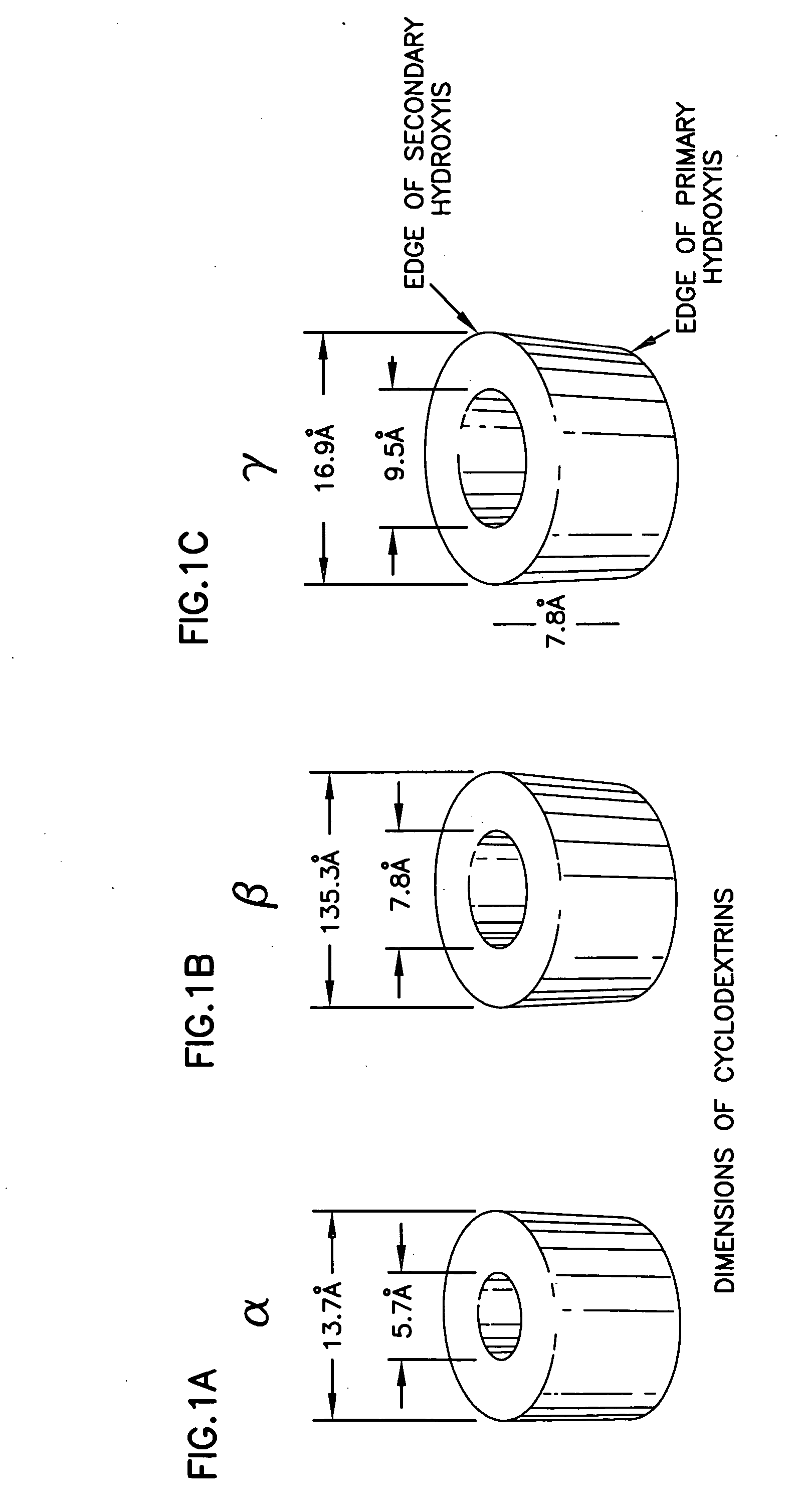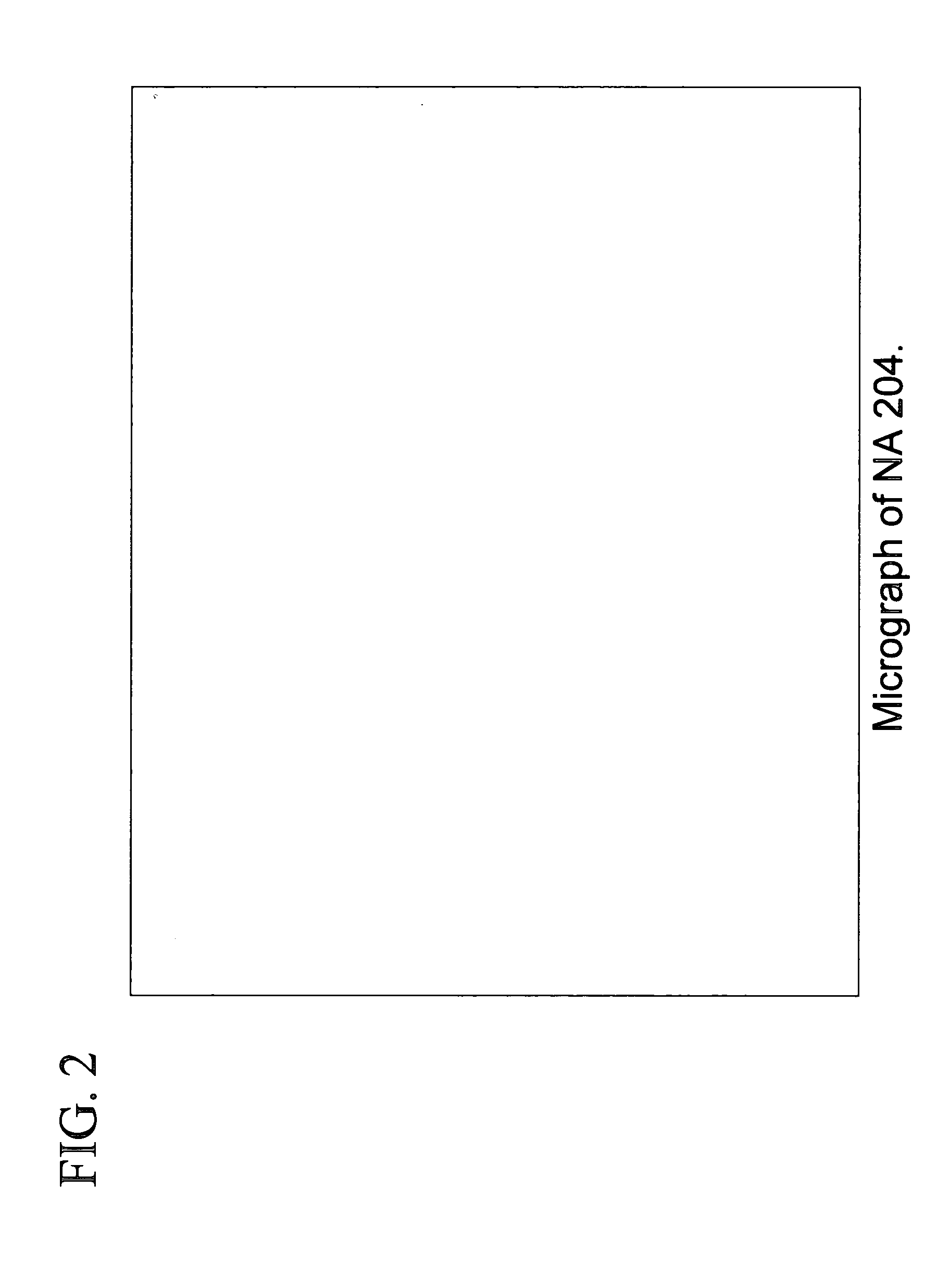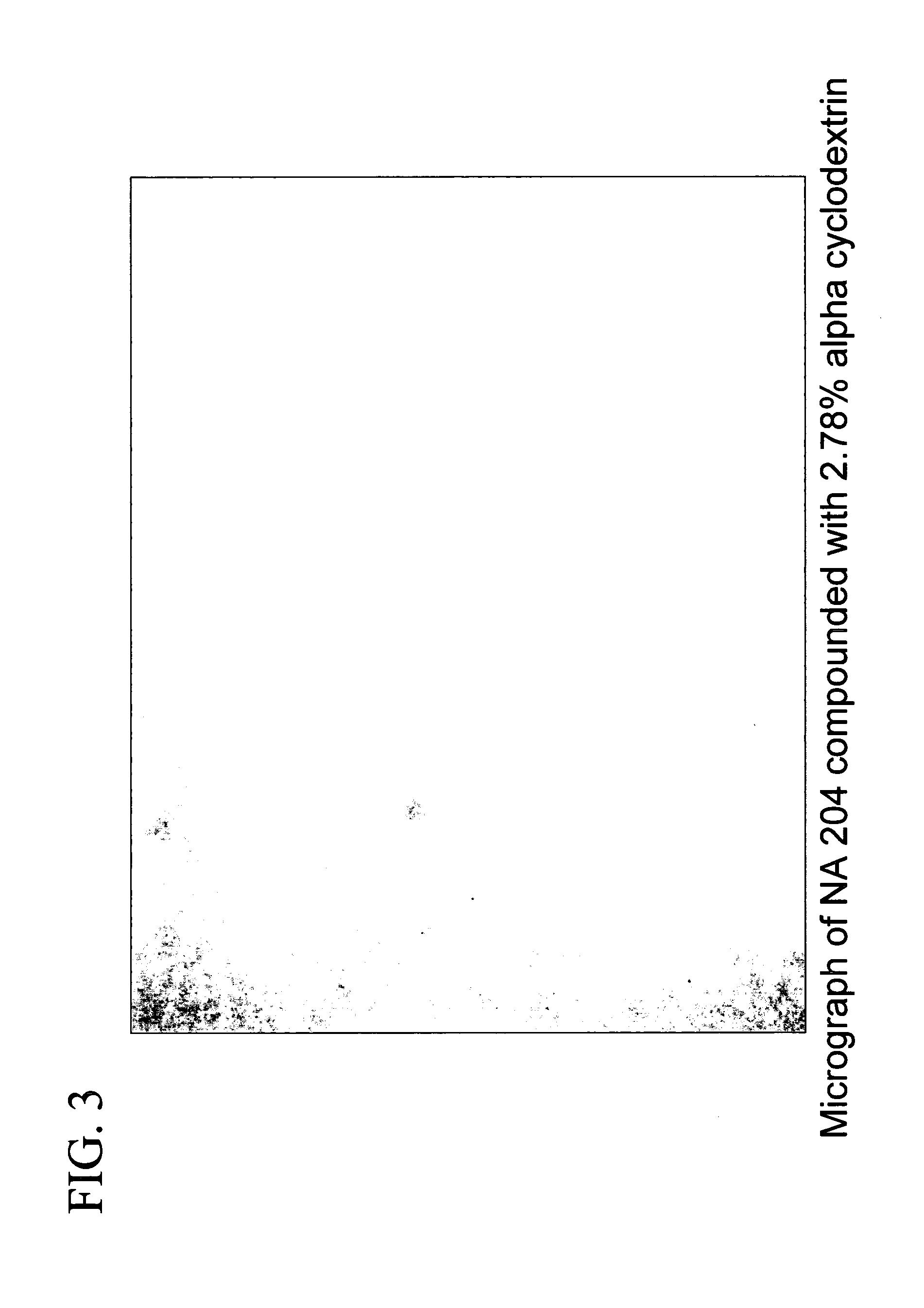Grafted cyclodextrin
a technology of cyclodextrin and cyclodextrin, which is applied in the field of polymer materials containing cyclodextrin, can solve the problems of incompatibility, large undertaking, and inability to meet the requirements of the patient, and achieve the effect of reducing surface energy, and reducing the number of patients
- Summary
- Abstract
- Description
- Claims
- Application Information
AI Technical Summary
Benefits of technology
Problems solved by technology
Method used
Image
Examples
example i
[0071] Selective flavor compound sorption by package contact materials continues to be a problem especially in beverages packaged in contact with LDPE. Nonpolar compounds have a very high affinity for LDPE. The partition coefficient of various aroma / flavor compounds into PE are highly correlated to their molecular structure and greatly influenced by polymer type, degree of crystallinity as well as the structure of the solute, and chain length and polarity of solute. A commercial single-strength “not-from-concentrate” orange juice was used to measure flavor compound partitioning in CD grafted LDPE and LDPE without CD grafting.
Materials
[0072] Two ethylene-maleic anhydride copolymer / LDPE blends (Plexar 5125 and Plexar 175, Equistar Chemicals, L.P.) were compounded with a stoichiometric weight loading of unmodified β-CD (3.20 wt %) using a Brabender Plasticorder Mixing Bowl. A third control sample of LDPE resin was also compounded on a Brabender Plasticorder Mixing Bowl but without CD...
example ii
[0078] Low level volatiles (e.g., monomers, refinery contaminants, etc.) remain as a residue of the polymerization process or later thermo-oxidation products (e.g., aldehydes and ketones) may be produced during the conversion process. Dispersed in the polymer matrix, these components are able to migrate into food products in contact with the package by a process generally controlled by Fickian diffusion. These components are typically volatile and mobile enough to be detected by the human nose and give rise to an organoleptic defect often described as a “plastic” taste that is generally considered undesirable by many consumers. Polyolefins are widely used for sealing elements in carbonated water, beer and soft drinks, as well as in numerous sealant layers for shelf stable packages such as cereals, crackers, cookies, salted snacks, etc. Aldehydes are produced in small quantities when sealing materials are compounded and later converted to liners and shells. The objective is to show t...
example iii
[0090] Purified bottled water demand has increased sharply worldwide. The process known as ozonation is the commercial method for disinfecting bottle water in the North America. The most commonly used materials to manufacture bottles and closures are plastics such as polyethylene terephthalate (PET) for the bottle and polyolefins for liners and threaded closure shells. A “plastic-like” off-taste and off-odor is noticeable in water packaged in all plastic containers. This organoleptic defect is especially noticeable in water treated with ozone. Plastic off-taste in bottled water has be correlated with the presence of low level (typically part per billion) concentrations of aldehydes (e.g., hexanal, heptanal, octanal, nonanal, and decanal). Even before the liner or shell comes into contact with ozonated water, low aldehydes concentrations are inherent in the thermoplastic materials, as shown in Example 2, due to thermal oxidation degradation during processing. However, substantially g...
PUM
| Property | Measurement | Unit |
|---|---|---|
| weight percent | aaaaa | aaaaa |
| weight percent | aaaaa | aaaaa |
| wt % | aaaaa | aaaaa |
Abstract
Description
Claims
Application Information
 Login to View More
Login to View More - R&D
- Intellectual Property
- Life Sciences
- Materials
- Tech Scout
- Unparalleled Data Quality
- Higher Quality Content
- 60% Fewer Hallucinations
Browse by: Latest US Patents, China's latest patents, Technical Efficacy Thesaurus, Application Domain, Technology Topic, Popular Technical Reports.
© 2025 PatSnap. All rights reserved.Legal|Privacy policy|Modern Slavery Act Transparency Statement|Sitemap|About US| Contact US: help@patsnap.com



